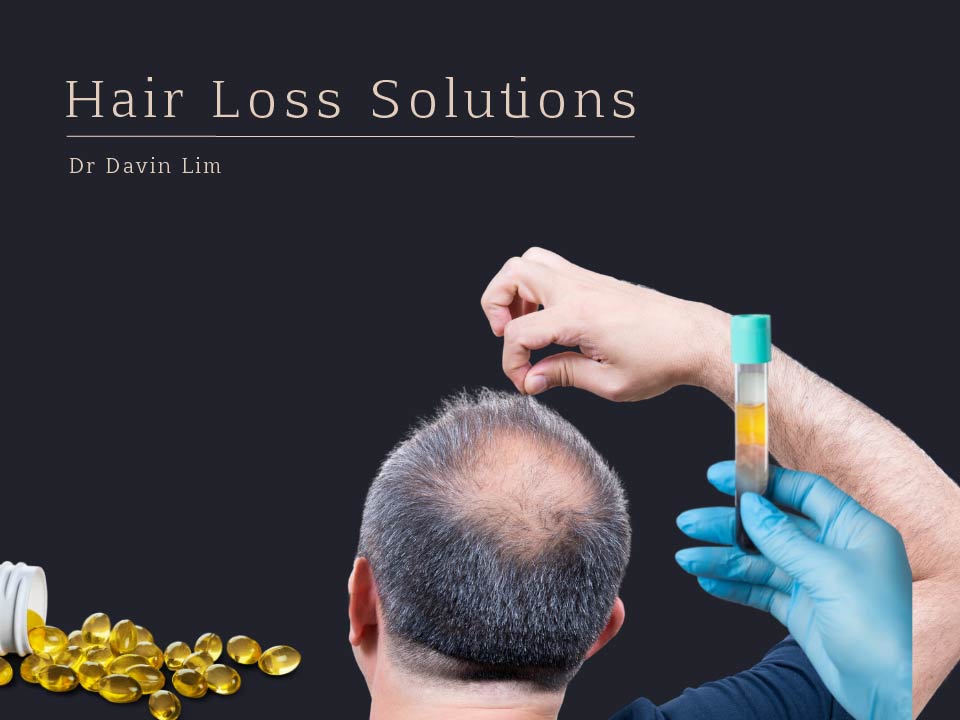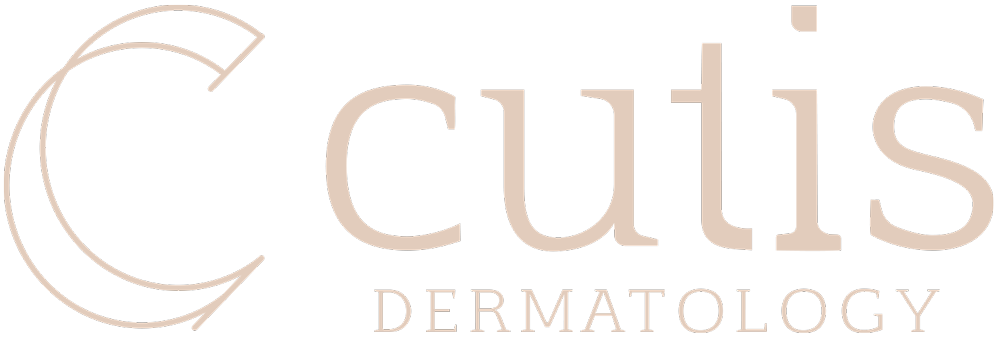Male pattern hair loss affects more than 50% of men. Early intervention by dermatologists at our Brisbane clinics will slow down hair loss & in most cases reverse the signs of early balding. Our specialist team at Cutis Dermatology have over 25 years’ experience in the treatment of hair loss.
We employ scientifically proven medications and the latest treatments to treat:
- Male Pattern Baldness
- Laser Hair Restoration
- Growth Factor Hair Treatments
- Alopecia Areata
Our results speak for themselves
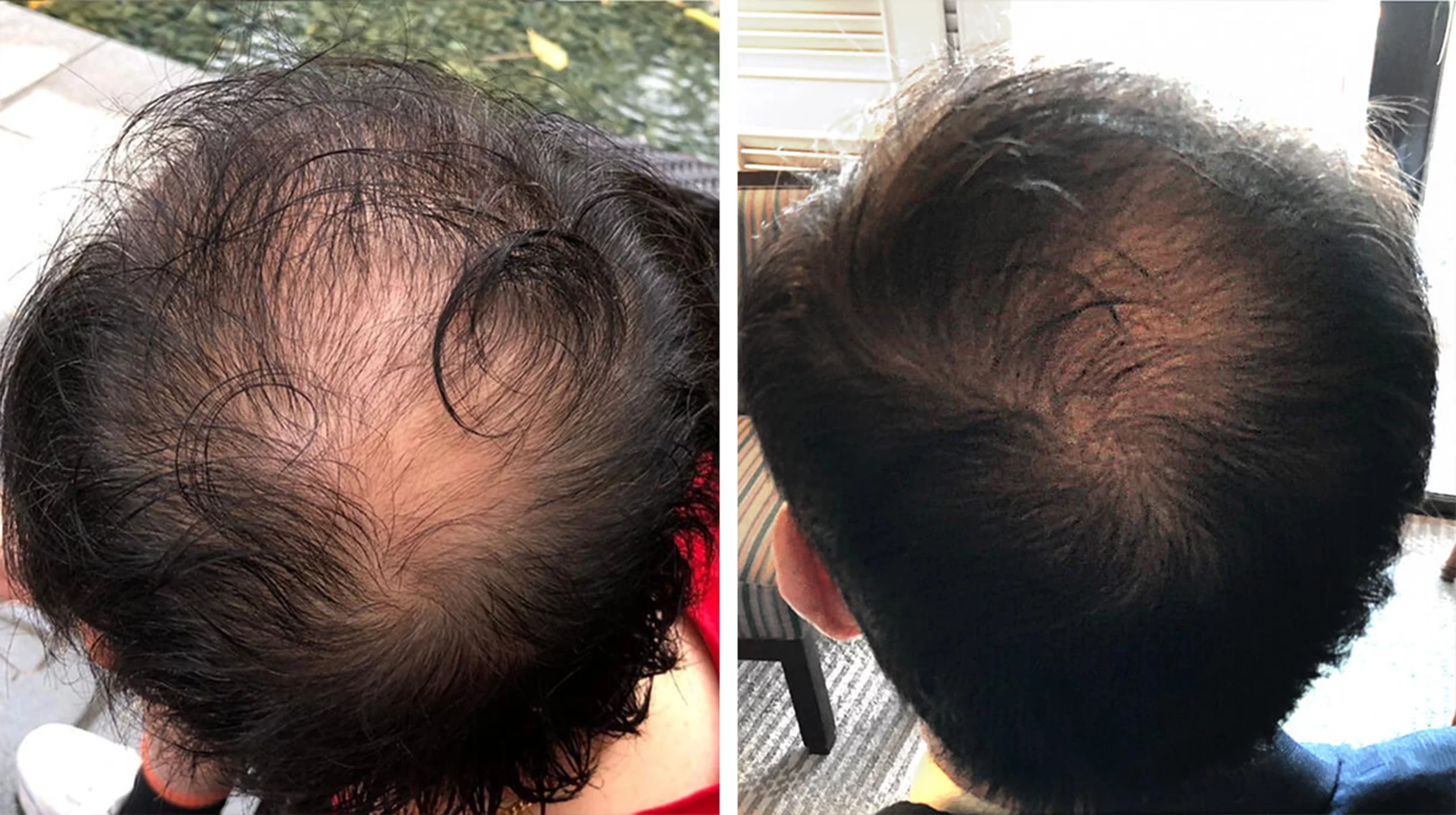
Before
After
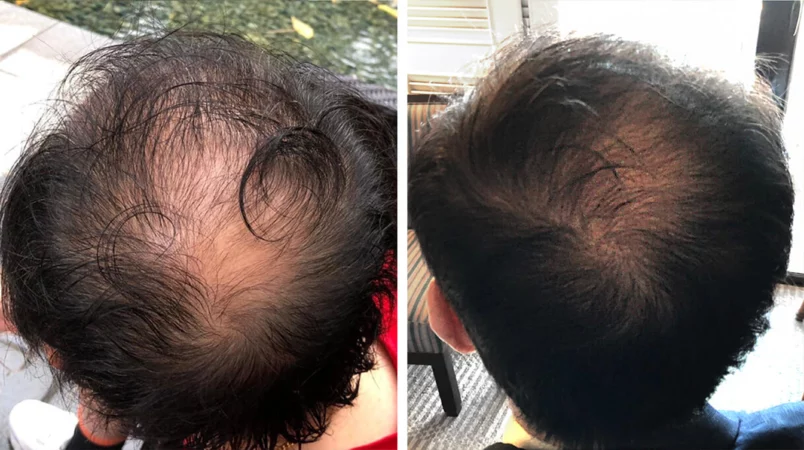
Ask us more about this treatmant
Preferred Consultation
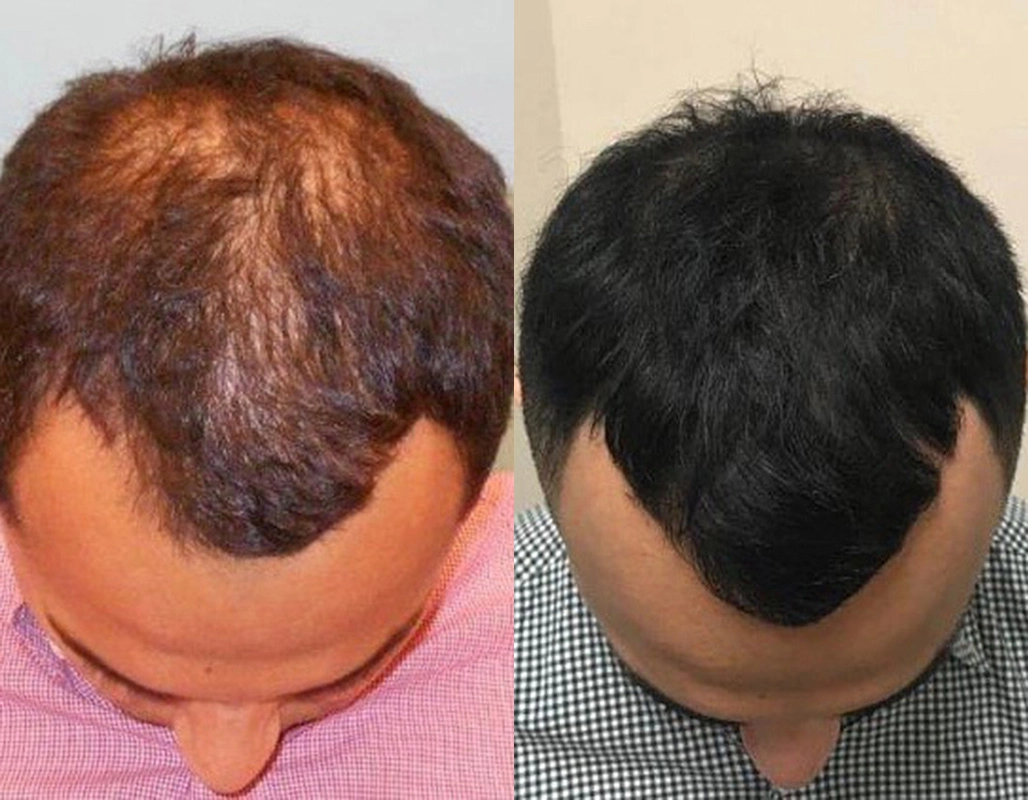
Before
After
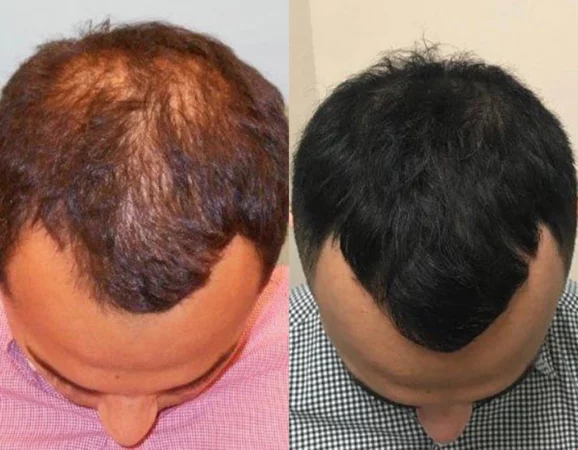
Growth factor injections for baldness. Four sessions, spaced
one month apart
Ask us more about this treatmant
Preferred Consultation
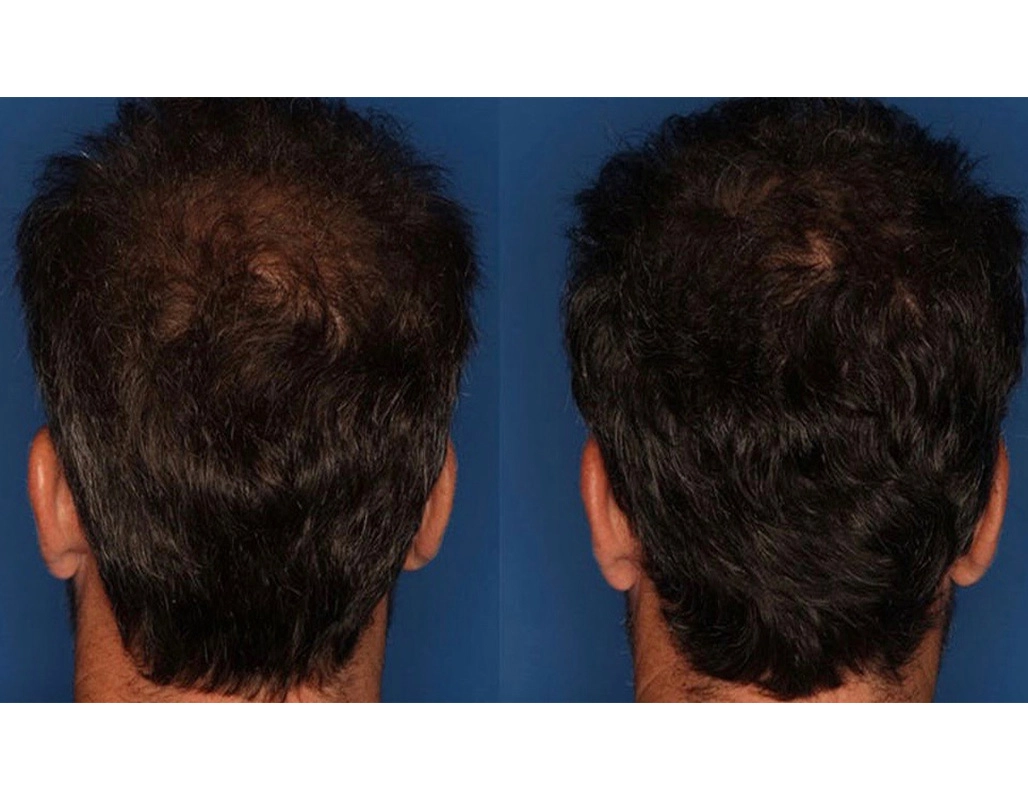
Before
After
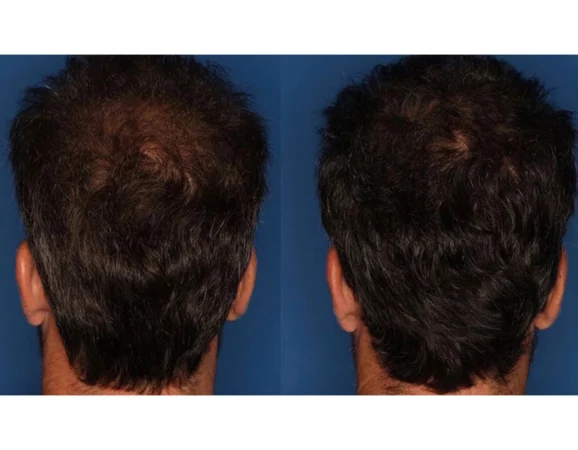
Platelet derived plasma is most successful
when initiated early
Ask us more about this treatmant
Preferred Consultation
Treatments for Hair Loss in Men
Stimulate new hair growth
Stop hair fall & accelerate recovery
With scientifically proven methods, our dermatologists can halt hair shedding & in most cases regrown your own hair back. Treatments are cost effective with a success rate of over 85%. Growth factor hair treatments are a non-surgical method of treating hair loss. It works by harnessing growth factors from your own blood. Treatments are quick, & effective with no side effects.
Our specialist team of dermatologists will cut through the commercial aspect of hair loss treatments & provide you with a clear pathway to successfully halt hair loss & accelerate hair regrowth.
FAQs
What are the common causes of hair loss in men?
Male pattern baldness is by far the most common of hair loss in men. Early diagnosis & treatment can markedly slow down hair loss. In most cases we can regrow hair with scientifically proven medications, growth factor treatment & lasers.
What are other causes of hair loss in men?
Apart from male pattern hair loss, our dermatologists treat-
- Alopecia areata
- Folliculitis
- Pseudofolliculitis
- Lichen planopilaris
- Genetic causes of hair loss
- Acne keloidalis nuchae
- Plus another 78 rare disorders of hair loss
How do we diagnose the type of hair loss you may have?
Dermatologists use the following methods to diagnose hair loss disorders. They include:
- Clinical examination
- Hair pull test
- Trichoscopy
- Biopsy for histology
- Culture (suspected cases of tinea)
What is tufted folliculitis or folliculitis de Calvans?
Folliculitis deCalvans is one of the most common causes of scarring hair loss in men. It is thought to be an immune reaction to bacteria which leads to inflammation & subsequent scarring. Early diagnosis is the key to long term management.
What is alopecia areata?
AA or alopecia areata is another common cause of hair loss. Classically it presents as a circular patch of non-scarring hair loss. Most patients don’t realise they have it.
Diffuse alopecia areata can mimic female pattern hair loss, however microscopic, dermatoscopic & clinical features are distinct. Our dermatologists can differentiate between these two conditions.
What is acne keloidalis nuchae?
Folliculitis decalvans is a common cause of scarring alopecia. It presents very differently compared to female baldness. It presents as inflammation of the hair follicle that is characterized by redness, swelling, pustules, crusts, and scaliness of the scalp. It leads to ‘tufts of hair’ on a bed of scarring.
Dermatologists are experts in the management of hair loss disorders. We diagnose & treat all types of hair loss, from common male pattern baldness to rare inflammatory disorders involving the hair & scalp.
Can medications cause hair loss?
The most common medications in men are acne medications and anabolic steroids such as testosterone & growth hormones. Stopped early, hair loss is often reversible.
How do dermatologists manage hair loss?
As with all things clinical, we reach for a diagnosis. In most cases we can diagnose without a biopsy. For rarer causes of hair loss, a biopsy is required. Examples include-
- Folliculitis deCalvans or tufted folliculitis
- Rare genetic disorders
- Lichenoid disorders such as lichen planus- planopilaris
What are low level laser treatments?
LLLT or low-level lasers are innovative devices that treat male & female pattern baldness. They work by extending the life cycle of the hair follicle. These devices are useful adjunctive treatments used at home. LLLT must be used long term to help slow down & stimulate hair growth.
Can lasers reverse hair loss?
There are clinical papers showing hair regrowth after fractional lasers in conjunction with growth factors. Cutis Dermatology has 3 main lasers that can be used to aid in absorption of growth enzymes. They include:
- Fraxel 1927 thulium
- LaseMD Ultra
- C+B Diode 1927
Though promising in the outcomes, 7-12 sessions are required over 6 to 12 months. Our experts prefer growth factor treatments using your platelets as the results are faster.
What are common causes of hair loss in the beard area?
The two most common causes of beard hair loss/balding are:
Alopecia areata: patchy hair loss that does not scar. It’s very common, in fact our dermatologist suffers from this condition. Simple treatments can often lead to regrowth.
Folliculitis of pseudofolliculitis: this essentially is balding due to inflammation of the beard hairs. In most cases it is due to ingrown hairs.
What shampoos can stop hair loss?
We wish it’s as simple as a shampoo to reverse hair loss & regrow hair. In 98% of hair loss conditions, a shampoo will be ineffective. There are two exceptions to this rule:
- Nizoral shampoo 2% ketoconazole can reduce hair fall in those who have seborrheic dermatitis or dandruff
- Coal tar shampoo for those who suffer from psoriasis.
What is acne medication associated hair loss?
Some acne medication is a common cause of hair loss, both in males and females. It is common; however, FDA reporting is low. Dermatologists recognise this condition & can take steps to prevent & in most cases reverse hair shedding from acne medication.
Hair loss occurs because the outer layer of hair follicles is more brittle. Additionally, the growth rate of hair follicles is often slowed down whilst on acne medication. Most cases of hair loss are reversible upon stopping the drug.
Prevention of hair fall include:
- Monitoring for early shedding while on acne medication. Unlike other side effects, hair fall is often not related to acne medication dose. The sooner you stop, the faster the resolution.
- Hair care is super important. Don’t dry your hair with a hair dryer on high, use a cool setting. Don’t color your hair whilst on acne medication. Heat increases the fragility of your hair shaft.
- Condition your hair to boost hydration to your hair shafts. Look for moisturizing conditioners & implement them in your hair care routine.
- Avoid vitamin A as acne medication is a vitamin A derivative. Too much vitamin A can cause paradoxical hair shedding.
Supplement your daily dose of vitamin B, or biotin. The evidence suggests that biotin can improve some cases of hair loss, however its true value in acne medication associated hair loss is weak, but harmless.

